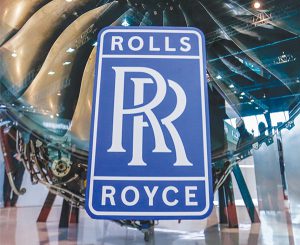The US aerospace industry’s supply chain and labour challenges are most likely just beginning.
Raytheon Technologies Corp said that it would ship 70 fewer jet engines than planned to Airbus SE in the first quarter because of bottlenecks at casting suppliers, resulting in weaker revenue growth in the period. General Electric Co has said that issues with material and labor availability and inflation, which have been most acute in its healthcare unit so far, will also manifest in its aviation business in the first half of 2022. Honeywell International Inc, meanwhile, has been cautioning for months that the aerospace supply chain has been sluggish in bouncing back from a long Covid slowdown, leading to parts shortages that put hundreds of millions of dollars of shipments at risk for delays.
“It’s the aerospace supply chain writ large — there’s just the machine gearing back up overall,†Honeywell Chief Financial Officer Greg Lewis said at a Barclays Plc conference. “You’re hearing that a lot more now from many of the other aero and defense companies. So I don’t feel quite as alone as maybe we did a little while earlier.â€
The commentary marks a shift for a corner of the economy that has been been relatively insulated thus far from the supply and hiring challenges that have been plaguing just about every other industry for the better part of a year now. In some ways, the aerospace sector’s inclusion in the supply chain crunch is good news: It’s a sign the industry is making progress digging out from the pandemic slump as demand rebounds for new planes and heavy maintenance work. But it’s also not clear the top US aerospace manufacturing companies are fully prepared for and appreciate the risks at hand.
Raytheon, for example, said that it would make up for the engine delays later this year and that its full-year guidance remains intact despite the expected first-quarter revenue shortfall. “I think all of this works itself out,†Chief Executive Officer Greg Hayes said at the Barclays conference.
In an interview after GE’s fourth-quarter earnings report in January, CEO Larry Culp said supply issues and Covid-driven labour absenteeism in the aviation unit were “very much short-term noise.â€
Indeed, recent earnings reports from the defense industry suggest more significant disruption could be looming.
—Bloomberg
 The Gulf Time Newspaper One of the finest business newspapers in the UAE brought to you by our professional writers and editors.
The Gulf Time Newspaper One of the finest business newspapers in the UAE brought to you by our professional writers and editors.
